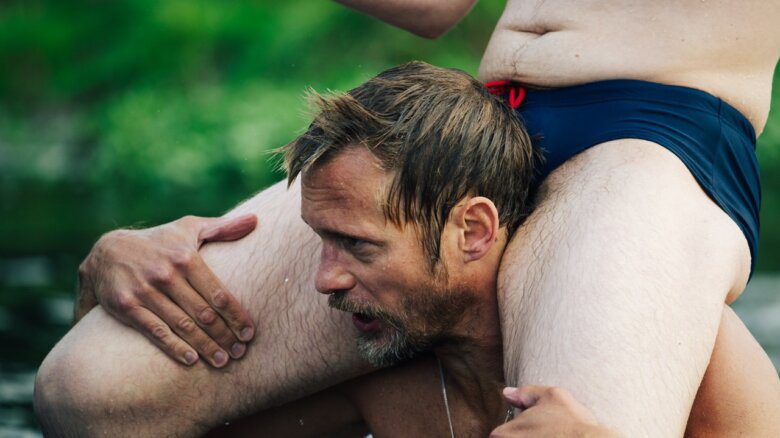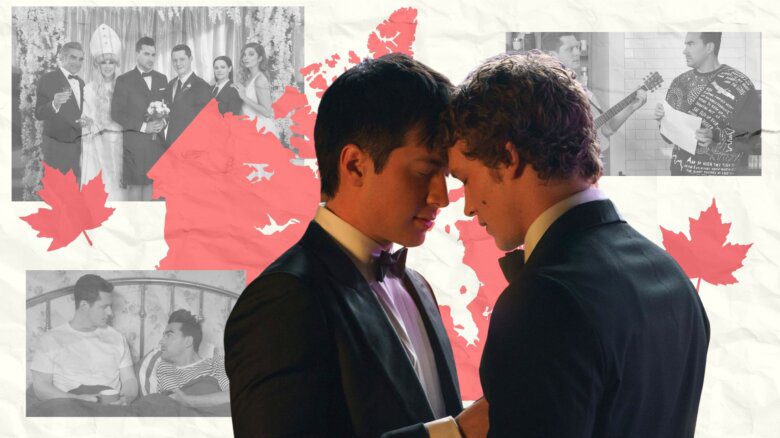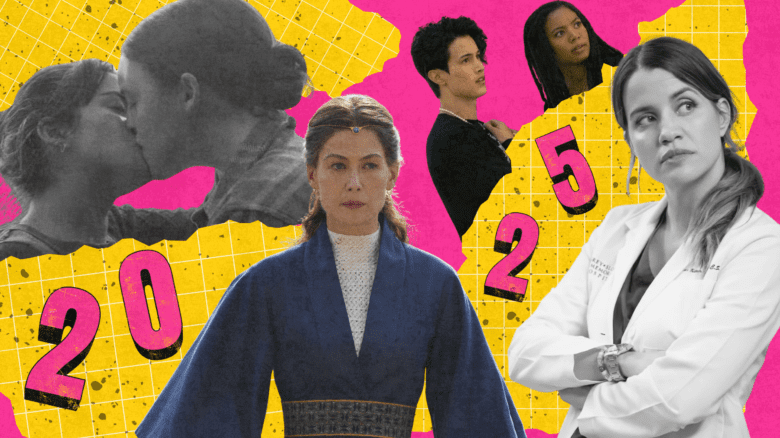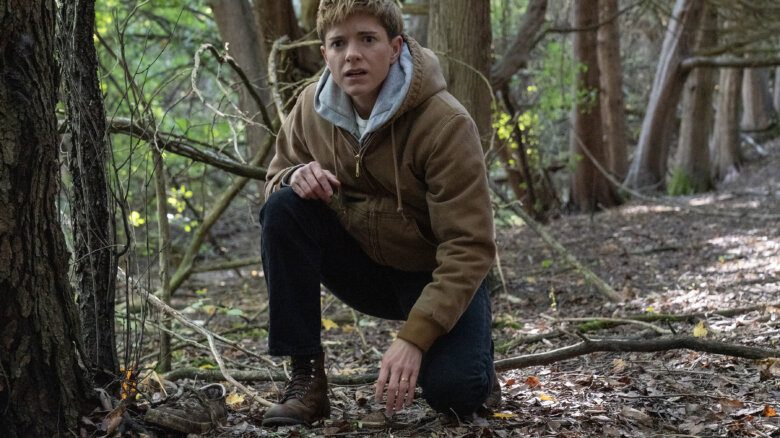When the character Morenike started showing up in the second season of the CBS sitcom Bob ❤️ Abishola, the original idea in the show’s writers’ room was that she would be a rival to Kemi for the romantic attention of Chukwuemeka (played by Tony Tambi). But by the third season, which just ended in May, Morenike (played by Tori Danner) had come out as queer and the various reactions, including some homophobic ones from her family and other members of the Nigerian-American community of Detroit, where the show is set, became a buzzed-about storyline.
Kemi, the show’s quirky best friend character, is played by Gina Yashere, who is also a co-creator of Bob ❤️ Abishola, with famous TV sitcom mogul Chuck Lorre (Young Sheldon, Big Bang Theory, Two and a Half Men and so many more). And anyone who knows Yashere and her comedy beyond her Kemi character knew that eventually something gay had to break out on Bob ❤️Abishola.
Morenike’s coming out, though not exactly based on Yashere’s own experience of coming out to an immigrant Nigerian community, was drawn from Yashere’s world.
“It was definitely my idea to introduce a gay character,” Yashere tells Xtra in an interview. “We wanted to tell that story, but we didn’t want to tell it in a mealy-mouthed, ‘Oh, and everybody’s happy ever after’ way. We wanted to tell the societal aspect of being gay, the religious aspect of it. We’re telling that story right through, so it’s not over yet.”
Morenike’s had a rough ride so far. Coming out to her own mom, Yashere didn’t know what to expect. For all she knew, her mom, who is “super Nigerian and super religious,” might have disowned her. “But for my mum, the love of her child trumped her religion,” says Yashere. “I think she was at a certain point in her life where she was like, ‘Why do I care so much about what other people think?’ She wasn’t happy about it—she doesn’t like when I do shows talking about gay things, and it’s not like like she’s coming to Pride parades with me—but she’s accepted me for who I am and she loves my girlfriend. So, my story is different from Morenike’s. But I have lots of friends who have had Morenike’s experience and it’s more likely people would have Morenike’s experience than mine.”
Bob ❤️ Abishola, which debuted in 2019, has become one of the most-watched network TV comedies in the United States, competing against juggernauts like The Simpsons and Family Guy in the ratings—Yashere’s got a serious hit on her hands. But the journey of a Black British lesbian, born to Nigerian parents, to the beating heart of Hollywood was, as you might guess, an unpredictable one.
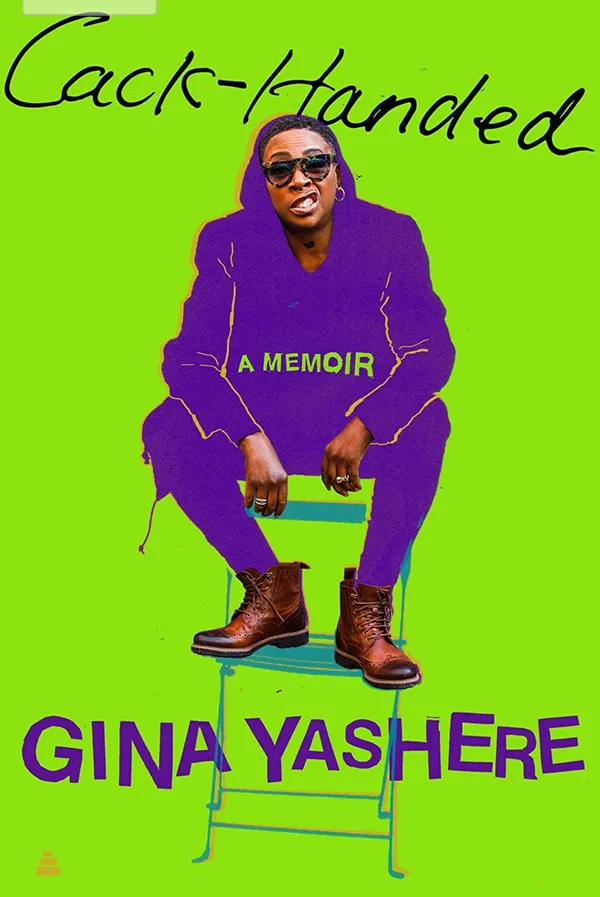
Yashere was born and raised in London, U.K., and worked as an elevator engineer before sliding into a career as a stand-up comedian; at this point, she’s been a comic for 28 years. She had some success on stage and screen in Britain, but the call of the U.S., which has an enormous comedy scene compared to other countries, was strong. She made it to the final 10 on the 2007 season of the U.S. reality competition show Last Comic Standing, and that success prompted her to make the move across the Atlantic.
The standup comedy scene is, of course, famous for being straight, male and white. Yet from the outset of the American phase of her life, Yashere’s material leaned into her cultural background and sexuality. “I’m from an African family and if you’re over 16 and you’re not married with eight kids, you’re a lesbian, that’s it,” she says, performing to an audience in 2007. “So when I go around to my mum’s house, I have to borrow a child. Unfortunately, I can’t always get the same child so my mum’s getting a bit confused. ‘Last week he was three months. Today, he’s 12.’ ‘Oh, they grow so quick, Mum, don’t they?’ ‘Yeah, but he’s Chinese.’”
After Last Comic Standing, Yashere lived first in New York, where she still goes to perform in comedy clubs, and then Southern California, where she currently shares a home with her girlfriend of nine years, a Chicago-raised assistant professor at a college of criminal justice. That’s a ridiculously cosmopolitan life. I ask Yashere what the most British thing is about her: “My accent. I’m not a big fan of tea unless I’ve got cookies to dunk in it.” The most Nigerian thing: “My work ethic.” And the most Californian thing: “I have two dogs, who I love greatly. Nigerians are not pet people. Hair, dirt, no way. But the California sunshine has affected my psyche. Now I have two mini Australian shepherds: Kemi, named after my character on the show, and Kayo. And I now go on hikes and play pickleball.”
Yashere came out publicly around the time she moved to the U.S.—about 15 years ago now—and was at first nervous about being labelled a “lesbian comic.” It seemed like it could curse a career that was already a struggle, though she got herself some comedy specials, some movie parts and appearances on the likes of The Daily Show with Trevor Noah. “That’s why it took me so much longer to come out. Because as a Black comic, a Black female comic, a Black female comic who doesn’t look a certain way and whose body and face do not adhere to the European standards of beauty, I always had these things against me when I started out. I was not going to get the gigs that certain other comics get,” she says. “I didn’t want to add another label for them to box me even further away from what I thought I could do. I just wanted to be a good comedian. But I think I transcended it. I think I’m a really good comedian and writer and comic actress, who also happens to be lesbian. That’s what I hope.”
“To go back to the past, to write those stories and look at where I am now and how I came out of it, not coming out of it angry or bitter or self-harming, but coming out of it pretty well. It definitely gave me a new sense of myself.”
Her first book, the memoir Cack-Handed, came out last year and has been well received—and was therapeutic to write. “There was a lot of traumatic stuff that happened to me. To go back to the past, to write those stories and look at where I am now and how I came out of it, not coming out of it angry or bitter or self-harming, but coming out of it pretty well. It definitely gave me a new sense of myself. You never stop to actually pat yourself on the back, but that’s what that book did for me.”
She’s currently wading through offers to have Cack-Handed made into a movie or TV series, something she says she’ll pursue more seriously after the end of Bob ❤️ Abishola, which she expects to last at least two more seasons (it’s already been renewed for season four). She figures that working in the writers’ room for the show takes about nine months of her year.
From inside the hit-making Lorre empire, her fears about being a “lesbian comic” seem to have mostly evaporated. When she and Lorre first crossed paths, she had been pitching a show of her own, based on her own Nigerian family, and “getting doors shut in my face.” Lorre had recently toured Africa and decided he wanted to make a show about a female protagonist of Nigerian descent, says Yashere. Based, it seemed, solely on her reputation, his team contacted Yashere to see if she would work as a cultural consultant for the proposed show. She was skeptical. “I turned it down. It sounded weird and exploitative. I’d had ideas of mine stolen before and turned into something horrible.” Persuaded by friends to change her mind, she met with Lorre and his team for a series of meetings. “After a couple of days, Chuck was like: ‘I like you, forget this consultant thing—we’re going to make a pilot and you’re going to be a producer and co-creator of this show.’ We hit it off in the room.”
Her first love remains stand-up, and soon after her work on season three was finished, she was booking comedy club dates. Yet Yashere is aware of the power the success of Bob ❤️ Abishola has given her. “My dream was to be the best friend on somebody else’s sitcom, get all the funniest lines and use that to sell out theatres. That was my dream. I had no intention of being a writer or executive or anything like that,” she says. “When I first started creating this show, I saw it as an opportunity to create this best friend character that I’ve always wanted to play. So I used it to fulfill my dream. Then I discovered that I had a talent for writing and for producing stories. And I was able to bring other Black talent forward, other black writers, Nigerian actors who may never have got opportunities like they’re getting on this show. And I discovered that I can make real change in this industry. So. I’m now going down that route.”
“Bob Hearts Abishola couldn’t have come at a better time. I get to make a show about love, a show about how immigrants make America great, not the other way around.”
With two of Yashere’s self-produced comedy specials, Skinny B*tch and Laughing to America, streaming on Netflix, I had to ask her what she thinks of her Netflix peers Ricky Gervais and Dave Chappelle telling jokes mocking trans people.
“That’s a question that cannot be answered easily,” she says. “All I’m going to say is that as a comedian, I prefer to punch laterally or punch up. I never punch down. And that is a key to good comedy. My comedy is also self-deprecating, making fun of myself as well as other people. Here’s another way I judge my jokes: If I’m talking about a specific group of people and I feel uncomfortable doing those jokes in a room full of those specific people, then I need to look at those jokes. That is how I judge my material and that’s how everybody should judge their material. If you can’t do that, then you know those jokes are racist or misogynistic or transphobic or whatever.”
Yashere says she’s got material for another memoir, this one focusing on her move to the U.S. It’s looking like it’ll have a happy ending. “My journey in America has been a long and hard one. It was a struggle, a real struggle,” she says. “Bob Hearts Abishola couldn’t have come at a better time. I was at the point in my career where I was ‘Where is this going? What’s the end game?’ And now I get to make a show about love, a show about how immigrants make America great, not the other way around. Now that I have my foot in the door and I am able to turn around and open that door for other Black creatives who have never had opportunities like this. So, it all happens for a reason.”
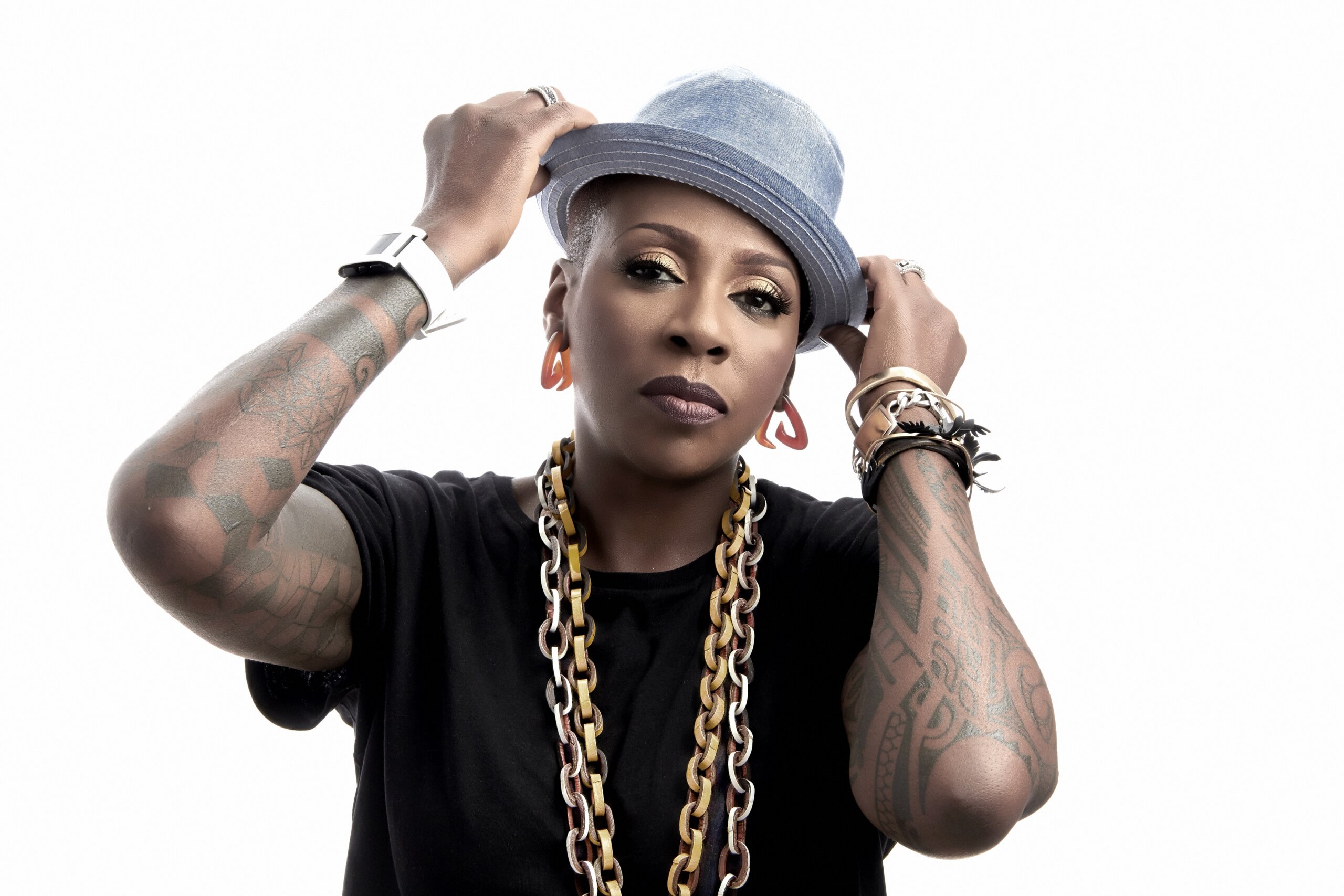

 Why you can trust Xtra
Why you can trust Xtra